
Pyraustinae is a large subfamily of the lepidopteran family Crambidae, the crambid snout moths. It currently includes over 1,400 species; most of them tropical but some found in temperate regions including both North America and Europe.

Spilomelinae is a very species-rich subfamily of the lepidopteran family Crambidae, the crambid snout moths. With 4,135 described species in 344 genera worldwide, it is the most speciose group among pyraloids.
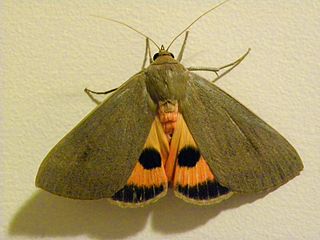
The Pyralini are a tribe of snout moths described by Pierre André Latreille in 1809. They belong to the subfamily Pyralinae, which contains the "typical" snout moths of the Old World and some other regions. The genus list presented here is provisional.

Crambinae is a large subfamily of the lepidopteran family Crambidae, the crambid snout moths. It currently includes over 1,800 species worldwide. The larvae are root feeders or stem borers, mostly on grasses. A few species are pests of sod grasses, maize, sugar cane, rice, and other Poaceae. The monophyly of this group is supported by the structure of the tympanal organs and the phallus attached medially to the juxta, as well as genetic analyses.
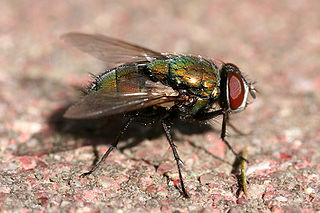
Lucilia is a genus of blow flies in the family Calliphoridae. Various species in this genus are commonly known as green bottle flies.

Brachypremna is a genus of true crane fly.

Oenochrominae is a subfamily of the moth family Geometridae.

The Chrysauginae are a subfamily of snout moths. They are primarily Neotropical and include about 400 described species.
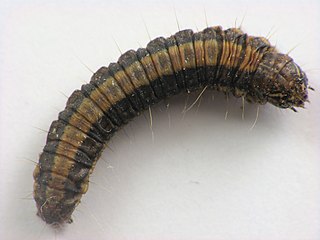
The Epipaschiinae are a subfamily of snout moths. More than 720 species are known today, which are found mainly in the tropics and subtropics. Some occur in temperate regions, but the subfamily is apparently completely absent from Europe, at least as native species. A few Epipaschiinae are crop pests that may occasionally become economically significant.
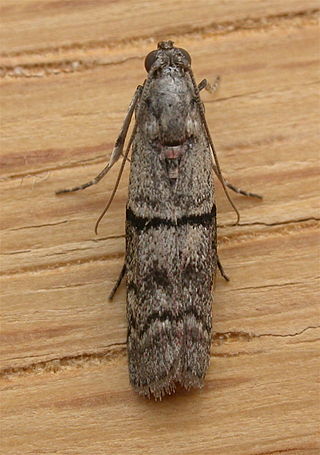
The Phycitini are a tribe of moths of the family Pyralidae.
Ethmia candidella is a moth in the family Depressariidae. It is found in North Africa, southern Europe and the Middle East.
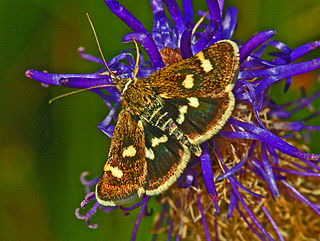
Odontiinae is a subfamily of moths of the family Crambidae. The subfamily was described by Achille Guenée in 1854.
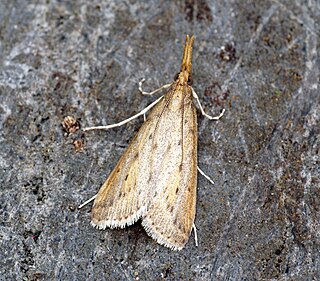
Schoenobiinae is a subfamily of the lepidopteran family Crambidae. The subfamily was described by Philogène Auguste Joseph Duponchel in 1846.
Chrysoesthia candidella is a moth of the family Gelechiidae. It is found in Tunisia.
Athrypsiastis is a genus of moths of the family Xyloryctidae. The genus was erected by Edward Meyrick in 1910.
Athrypsiastis salva is a moth in the family Xyloryctidae. It was described by Edward Meyrick in 1932. It is found in China.
Athrypsiastis delicata is a moth in the family Xyloryctidae. It was described by Alexey Diakonoff in 1954. It is found in New Guinea.
Agroterini is a tribe of the species-rich subfamily Spilomelinae in the pyraloid moth family Crambidae. The tribe was erected by Alexandre Noël Charles Acloque in 1897.

Margaroniini is a tribe of the species-rich subfamily Spilomelinae in the pyraloid moth family Crambidae. The tribe was erected by Charles Swinhoe and Everard Charles Cotes in 1889, originally as family Margaronidae.

Candidella is a genus of corals belonging to the family Primnoidae.













